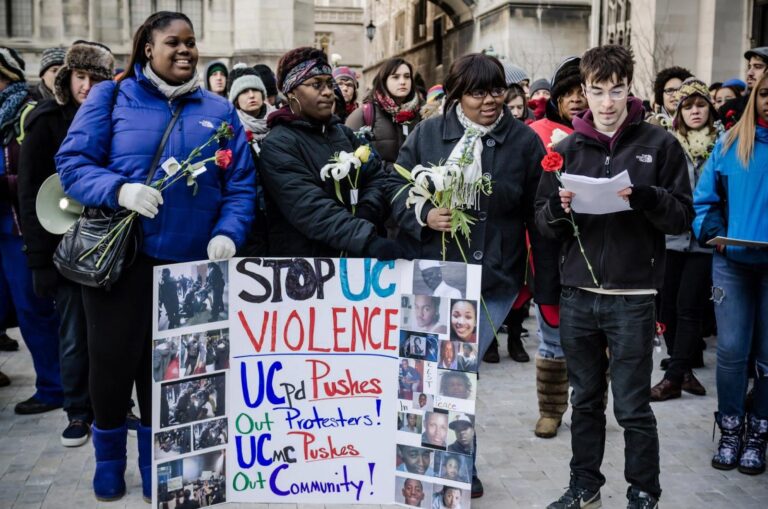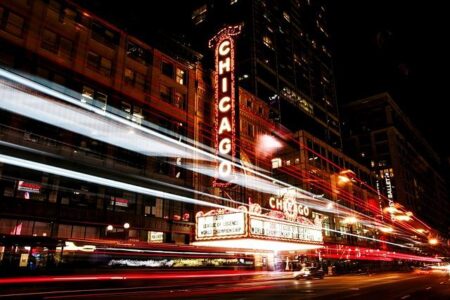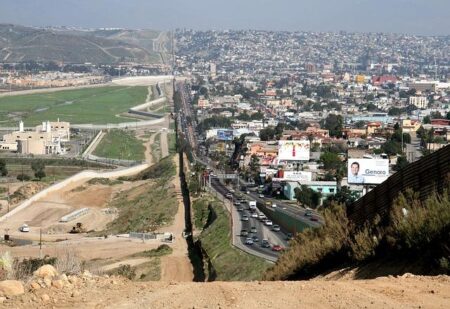Chicago Faces Escalating Gun Violence Amid Federal Intervention Plans
Sharp Increase in Weekend Shootings Raises Alarm Across Chicago
During the recent extended weekend, Chicago experienced a meaningful escalation in violent crime, with eight individuals losing their lives and over fifty sustaining injuries from shootings scattered throughout the city. Areas previously regarded as relatively secure have been disrupted by this wave of gunfire, intensifying anxiety among residents and officials alike. This surge in violence has ignited urgent demands for swift and effective measures as communities confront the harsh realities of a summer marked by relentless unrest.
In light of these developments, former President Donald Trump has declared intentions to deploy federal law enforcement agents to support local police forces. This decision has sparked a heated debate regarding the appropriate balance between federal involvement and local autonomy in tackling urban crime. Below is a summary of the weekend’s violent incidents by day and neighborhood:
| Day | Deaths | Injuries | Impacted Neighborhoods |
|---|---|---|---|
| Friday | 3 | 18 | Englewood, Austin |
| Saturday | 2 | 15 | South Shore, West Garfield Park |
| Sunday | 3 | 17 | Little Village, North Lawndale |
- Heightened police presence is planned for the most affected districts this week.
- Community advocates urge expanded funding for violence prevention initiatives.
- Federal agencies intend to offer enhanced intelligence-sharing support to local law enforcement.
Federal Law Enforcement Deployment: A Controversial Response to Rising Crime
Chicago’s recent weekend violence surge has overwhelmed local law enforcement, with eight fatalities and more than fifty shooting victims reported citywide. The widespread nature of these attacks, spanning multiple neighborhoods, has intensified public demand for decisive action to restore safety.
In response, former President Donald Trump announced plans to send federal law enforcement officers to Chicago. The deployment aims to:
- Increase patrols in neighborhoods with high crime rates and secure public areas
- Improve coordination and intelligence exchange between federal and local agencies
- Disrupt organized crime groups believed to be driving the violence
| Crime Metric | Recent Long Weekend | Previous Weekend |
|---|---|---|
| Fatal Shootings | 8 | 4 |
| Non-fatal Shootings | 50+ | 30 |
| Police Patrol Activity | Elevated | Normal |
Community Voices Advocate for Holistic Solutions Beyond Federal Presence
Grassroots leaders and local advocates stress that federal law enforcement alone cannot resolve Chicago’s violence crisis. While the federal deployment may provide short-term relief, sustainable peace requires addressing underlying social and economic factors. Alicia Mendoza, a respected community organizer, remarked, “Increasing police numbers is a stopgap, not a cure.” She and others emphasize the importance of community-driven programs that build trust and resilience in neighborhoods hardest hit by gun violence.
- Mentorship and after-school activities designed to steer youth away from gang involvement
- Expanded mental health support to assist individuals affected by trauma
- Job creation and vocational training tailored to local economic needs
- Strengthening community-police relations through transparency and ongoing dialog
| Initiative | Focus Area | Anticipated Benefit |
|---|---|---|
| Youth Programs | Education & Mentorship | Reduced Gang Recruitment |
| Mental Health Services | Trauma Recovery | Prevention of Recidivism |
| Economic Development | Job Training | Lower Poverty Rates |
| Community-Police Engagement | Trust Building | Improved Public Safety |
Reverend Jamal Turner, a local faith leader, warned that without these complete strategies, violence will persist despite increased federal law enforcement. He emphasized, “Empowering communities must be the foundation of any lasting solution.” The collective call from activists highlights the need for policy shifts and funding priorities that uplift neighborhoods plagued by systemic neglect and chronic violence.
Expert Insights: Combining Enhanced Policing with Social Interventions
Experts in criminology and community safety advocate for a balanced approach that integrates intensified local policing with robust social programs to effectively reduce gun violence in Chicago. While federal involvement garners headlines, specialists underscore the critical role of targeted local strategies such as increased foot patrols and specialized gun violence task forces in disrupting criminal activity.
Together, addressing root causes-such as economic hardship, educational disparities, and mental health challenges-is vital. Initiatives focusing on youth engagement, vocational training, and conflict mediation have demonstrated success in fostering community resilience and reducing gang recruitment.Key recommended programs include:
- Violence Interruption Teams: Community-trained mediators who de-escalate conflicts before they turn violent.
- After-School and Mentorship Programs: Safe environments and positive role models for vulnerable youth.
- Expanded Mental Health Access: Services addressing trauma and behavioral health to prevent cycles of violence.
- Job Creation and Skills Training: Economic alternatives that deter gang involvement.
| Approach | Effect | Timeline |
|---|---|---|
| Community Policing | Builds trust and deters crime | Immediate |
| Youth Engagement | Long-term violence reduction | 6-12 months |
| Mental Health Services | Reduces relapse into violence | 3-6 months |
| Job Training | Provides alternatives to gang life | 6-18 months |
Conclusion: Navigating Chicago’s Path to Safer Communities
The recent weekend’s violent outbreak, resulting in eight deaths and over fifty injuries, highlights the persistent challenges confronting Chicago’s law enforcement and community stakeholders. As federal authorities prepare to augment local efforts at the request of Mayor Lori Lightfoot,the effectiveness of this intervention will be closely scrutinized. The coming weeks will be pivotal in determining whether a combined strategy of federal support, enhanced policing, and community-driven social programs can reverse the city’s troubling trend of gun violence and restore a sense of security for its residents.





